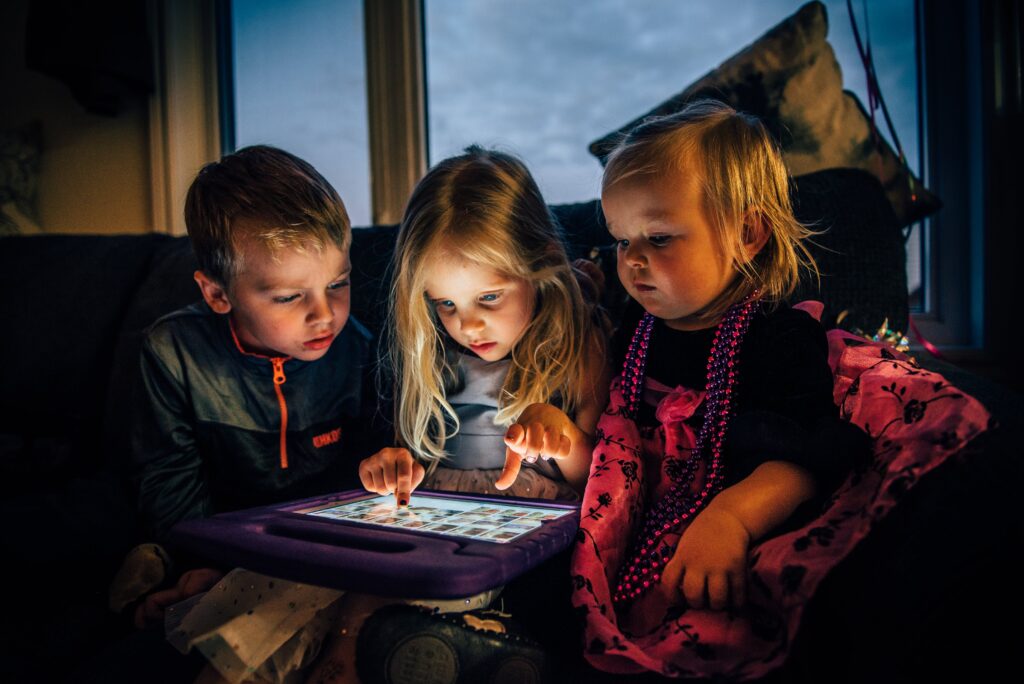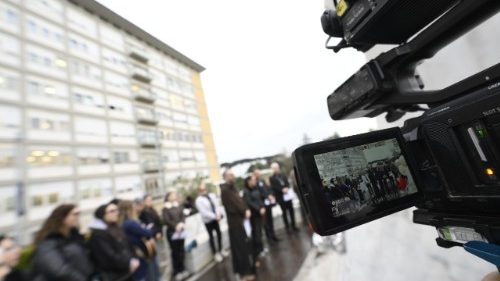More and more countries are coming together to regulate the use of new technologies in schools
As we explained in previous publications, big technology companies – such as TikTok, Meta, Google or Snapchat – have been sued by dozens of schools in Seattle, United States, for causing large-scale psychological damage to minors. And, according to UNICEF data, the average age at which children have a mobile phone is before they turn […]

As we explained in previous publications, big technology companies – such as TikTok, Meta, Google or Snapchat – have been sued by dozens of schools in Seattle, United States, for causing large-scale psychological damage to minors. And, according to UNICEF data, the average age at which children have a mobile phone is before they turn 11, having access to any type of information and exposing themselves to becoming victims of crime.
The lawsuit is based on the possibility that access to these platforms could be related to the appearance of disorders such as depression, eating disorders (ED), cyberbullying or decreased school performance. “The increase in suicides and suicide attempts and the increase in visits to mental health centers is not a coincidence. This crisis was already worsening before the pandemic, and research has determined that social networks play an important role in the emergence of mental health problems in young people,” the plaintiffs state.
New technologies have found a place, not only in the homes of most children but also in schools, appearing to be an indispensable tool in the school curriculum.
However, UNESCO recently published a global education monitoring report called “Global Education Monitoring Report, 2023: technology in education: a tool on whose terms?” (“Technology in education: A tool at whose service?”). It states that there is no solid evidence about the added value of digital technology in education, much of it coming from those trying to sell it.
“Technology affects all areas of life, as it expands opportunities for connection and access to information, but it also poses risks to security, privacy, equality and social cohesion, which sometimes translates into damages against which it is necessary to protect users. Not all changes represent progress; Just because something can be done does not mean it should be done,” they state in said report.
The document ensures that increased exposure time to screens can have a negative impact on emotional control and stability, increase anxiety and depression, and have a detrimental effect if used inappropriately or excessively.
The data offered by the Program for International Student Assessment suggest “a negative relationship between excessive use of ICT and students’ academic results. Few countries have strict regulations in this area, less than a quarter have banned the use of smartphones.”
Initiatives in other countries
Several countries are taking initiatives to regulate its use:
- In Greystones, a town on the coast of Ireland, eight schools have developed voluntary regulations that restrict the use of mobile phones until the age of 12, both at school and in daily life. This initiative was carried out by the director of a Saint Patrick school, Rachel Harper, who stated that “childhood is getting shorter and shorter. 9-year-old children feel coerced by other minors to be constantly online. And they are not emotionally prepared. Anxiety has skyrocketed. “Something had to be done.” Unity is strength and, when parents feel pressured by their children to buy them a cell phone, the decision not to do so no longer makes them feel exceptional. They have found a way to hold on together and not give in, at least until they start high school. We aspire to create a critical mass, a snowball…” explains Harper, who met with the Minister of Education, Norma Foley. Now, the Irish Government is considering launching similar initiatives at the national level.
- In the US, Silicon Valley is among the first to prohibit its use in schools. 10 states and 44 school districts have joined Seattle’s lawsuit against TikTok, YouTube or Snapchat. Specifically, in San Mateo, headquarters of Meta (a brand that owns social networks such as Facebook, Messenger, Instagram and WhatsApp, among others), the use of cell phones in schools has already been prohibited, introducing magnetic bags that make them useless.
- Sweden, on the verge of completing full digitalization, has redirected educational resources destined for mobile devices and training video games to the purchase of textbooks and more teachers.
- France, Italy and the Netherlands, starting in 2024, will ban the use of mobile devices in schools at the state level.
- In Spain, regulation is in the hands of the Autonomous Communities. Thus, Madrid, Galicia and Castilla La Mancha have defined guidelines. The rest of the Communities are governed by the educational center. An example is the Arnau Cadell Institute, where after 3 years of restrictions they assure that “they are all advantages” despite the difficulty of their implementation in the first year.
Another consequence of the misuse of technologies, as we explained, has been the growing consumption of pornography among young people, increasing sexual aggressiveness, the risk of risky sexual behavior or the objectification of women. There is unquestionable evidence about the alterations in brain connectivity observed in the brains of people addicted to pornography consumption, which should modify the criteria for dissemination and access to this content.
Emilio Calatayud – renowned lawyer, writer, Spanish magistrate and juvenile judge – claims to have had “cases of kids who, unbeknownst to their parents and taking advantage of COVID-19, have spent 18 hours a day on the phone. It is a drug, a very dangerous instrument to commit criminal acts and a very dangerous instrument to be a victim of crime.”
Julio Tudela – Paloma Aznar – Life Sciences Institute – Bioethics Observatory – Catholic University of Valencia
Related

Pope Francis spent a peaceful night
Exaudi Staff
02 March, 2025
1 min

Pope Francis has had a peaceful night
Exaudi Staff
25 February, 2025
1 min

What should the boyfriend or girlfriend I should find be like?
Patricia Jiménez Ramírez
24 February, 2025
4 min

The Pope spent a quiet night at Gemelli
Exaudi Staff
23 February, 2025
1 min
 (EN)
(EN)
 (ES)
(ES)
 (IT)
(IT)

